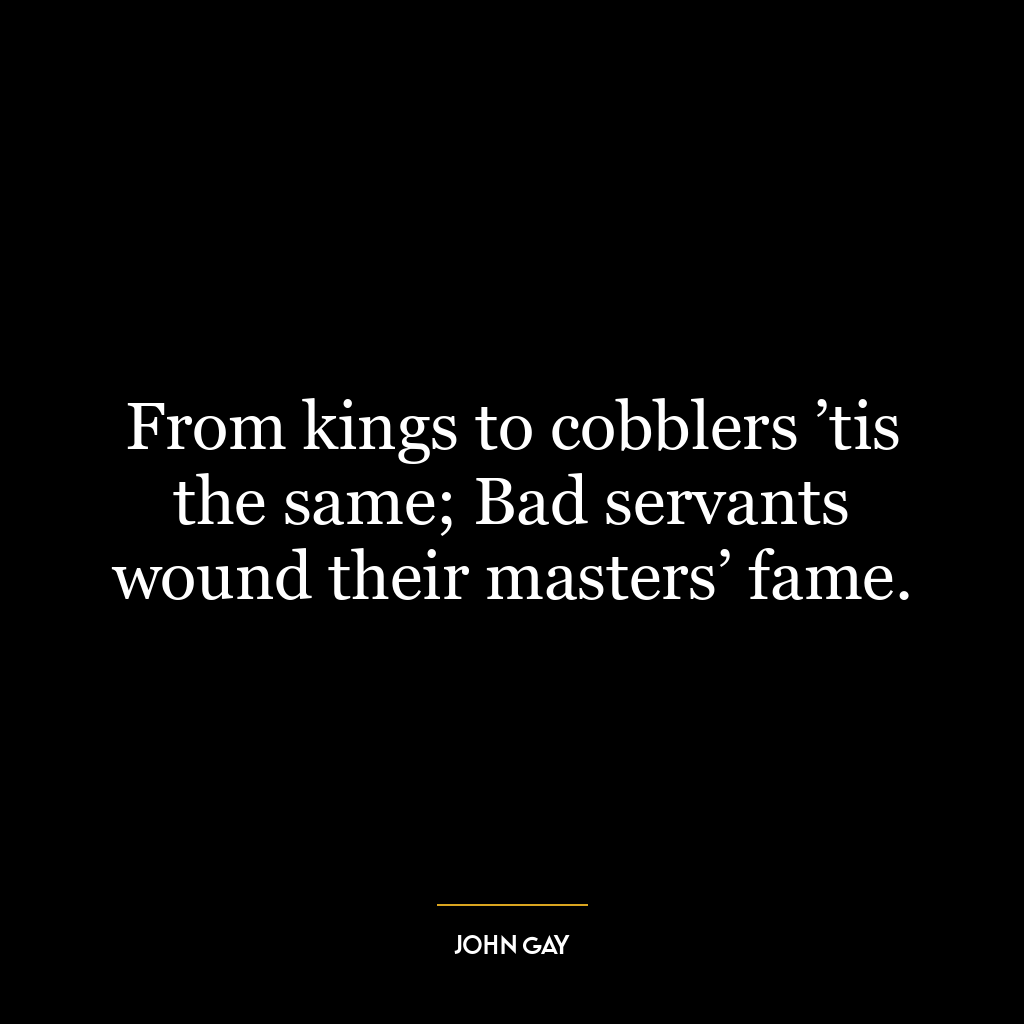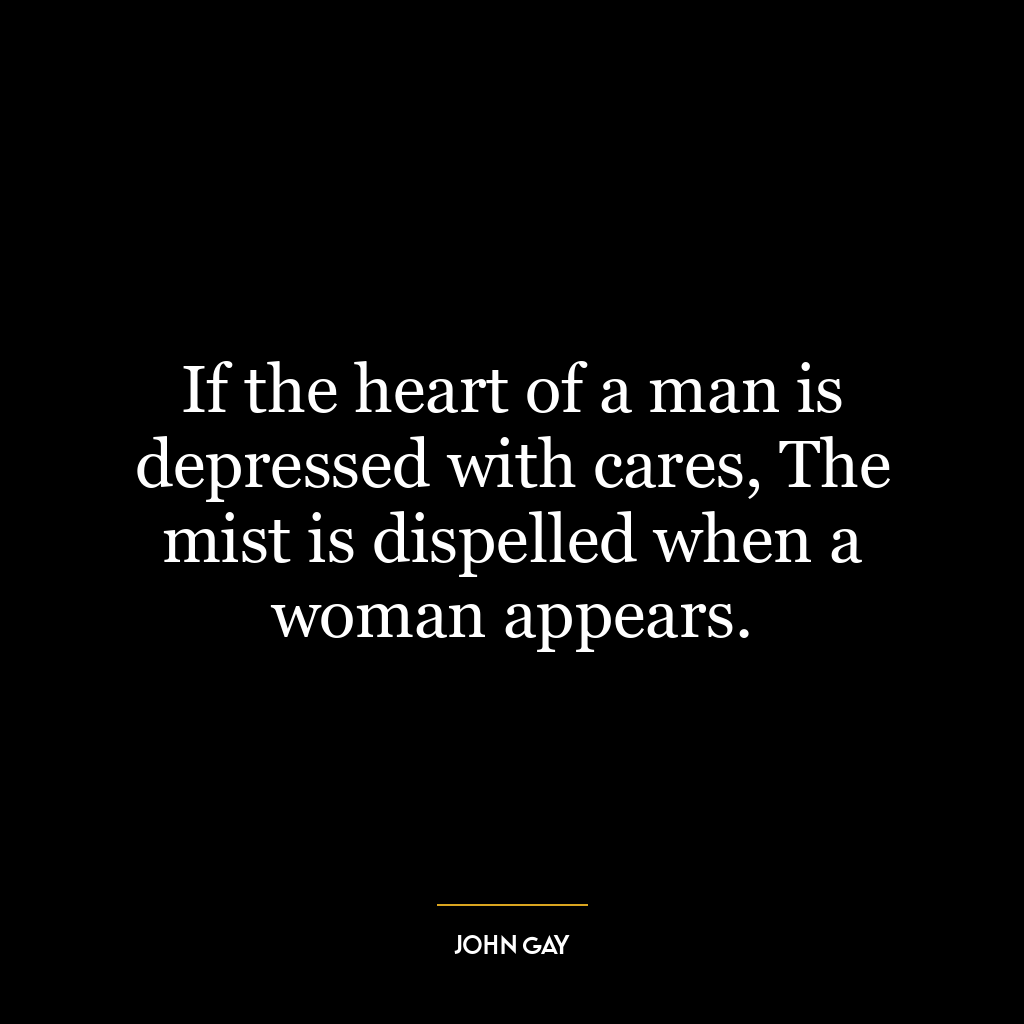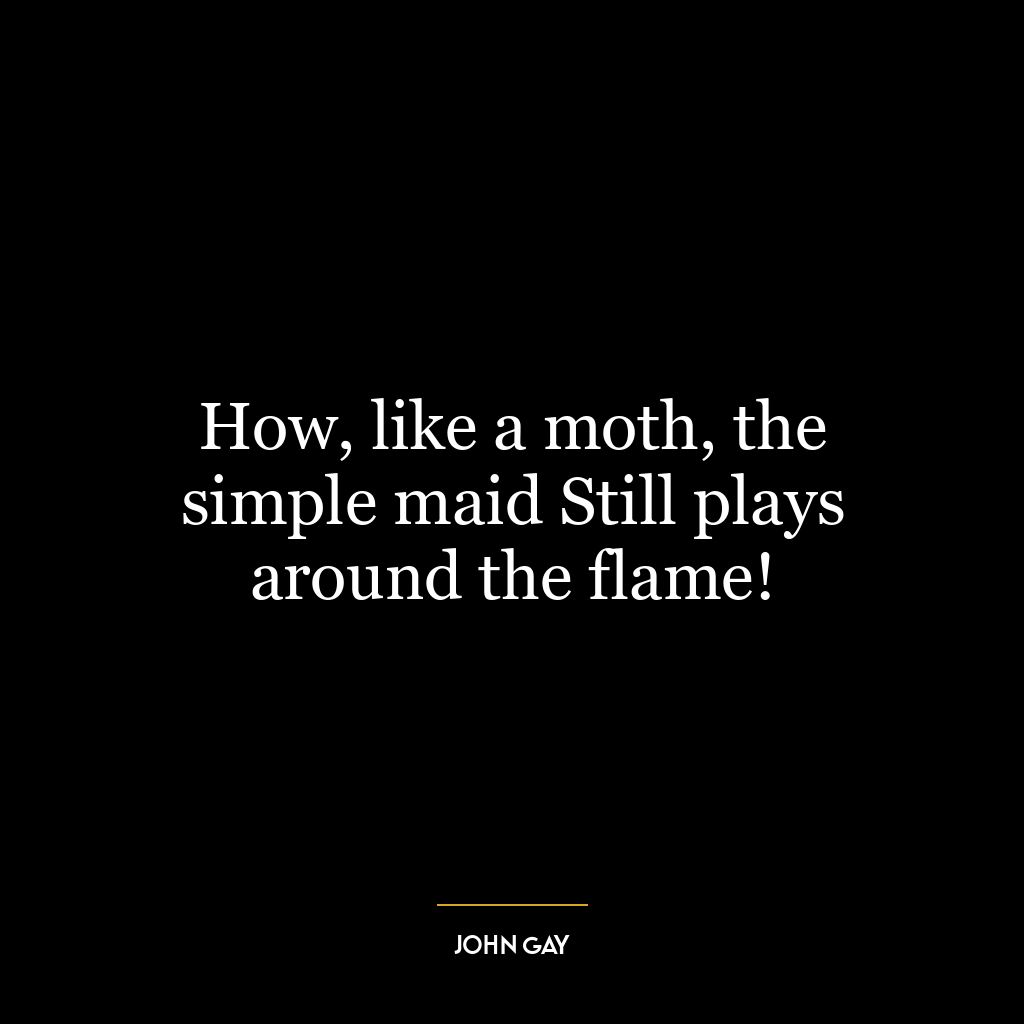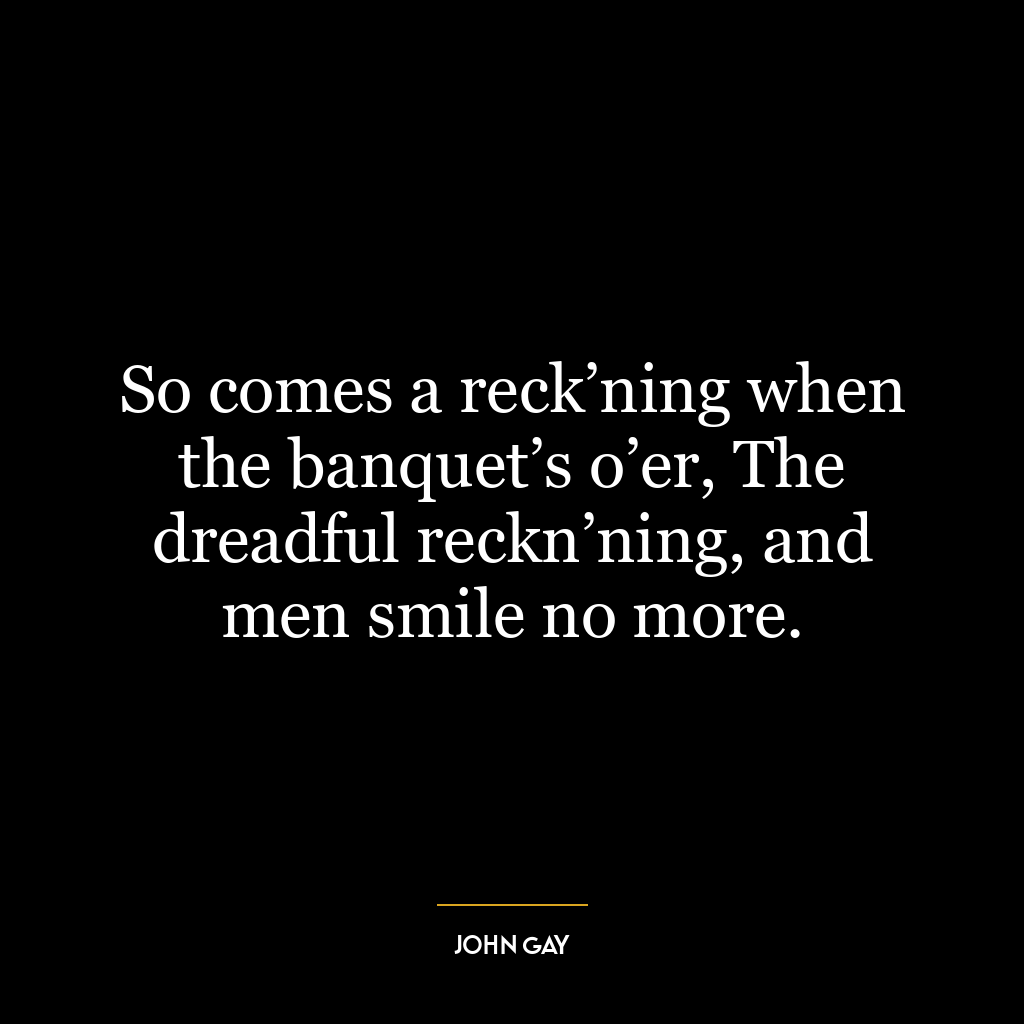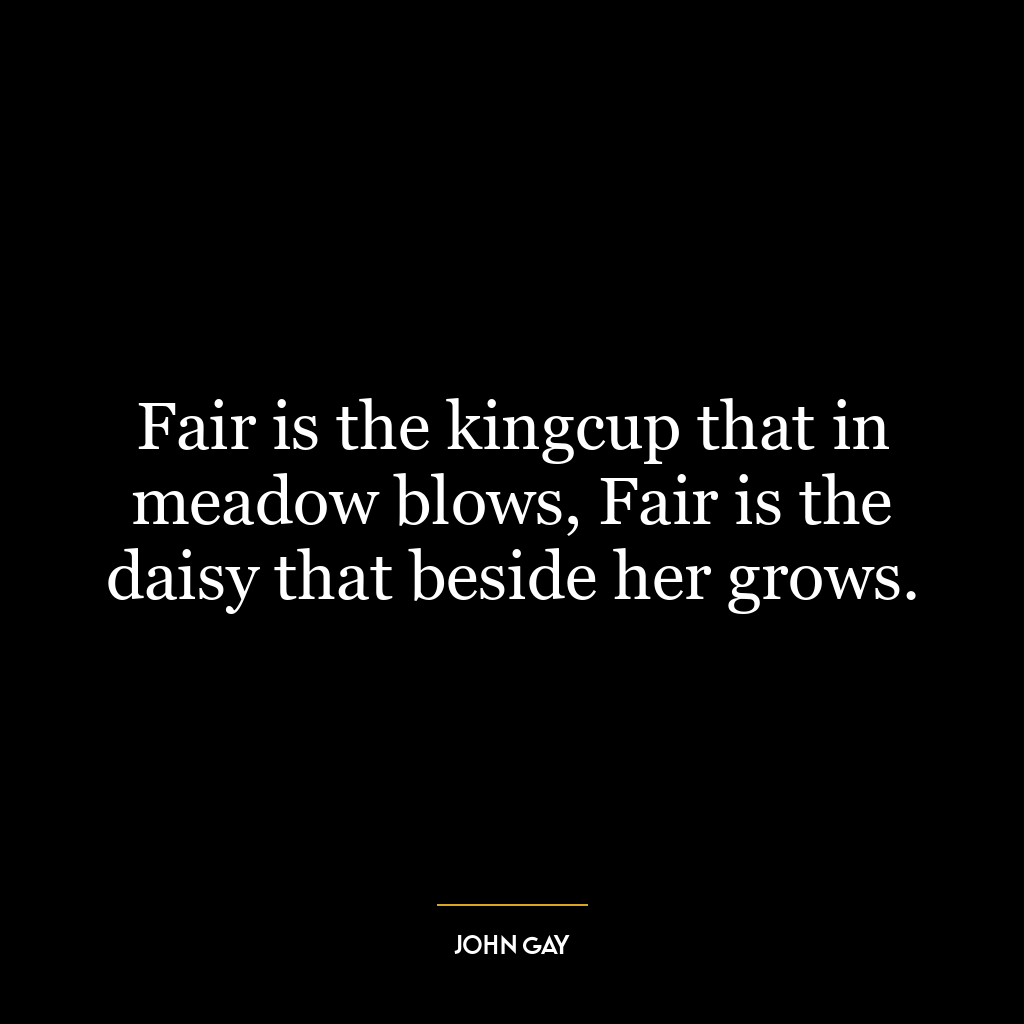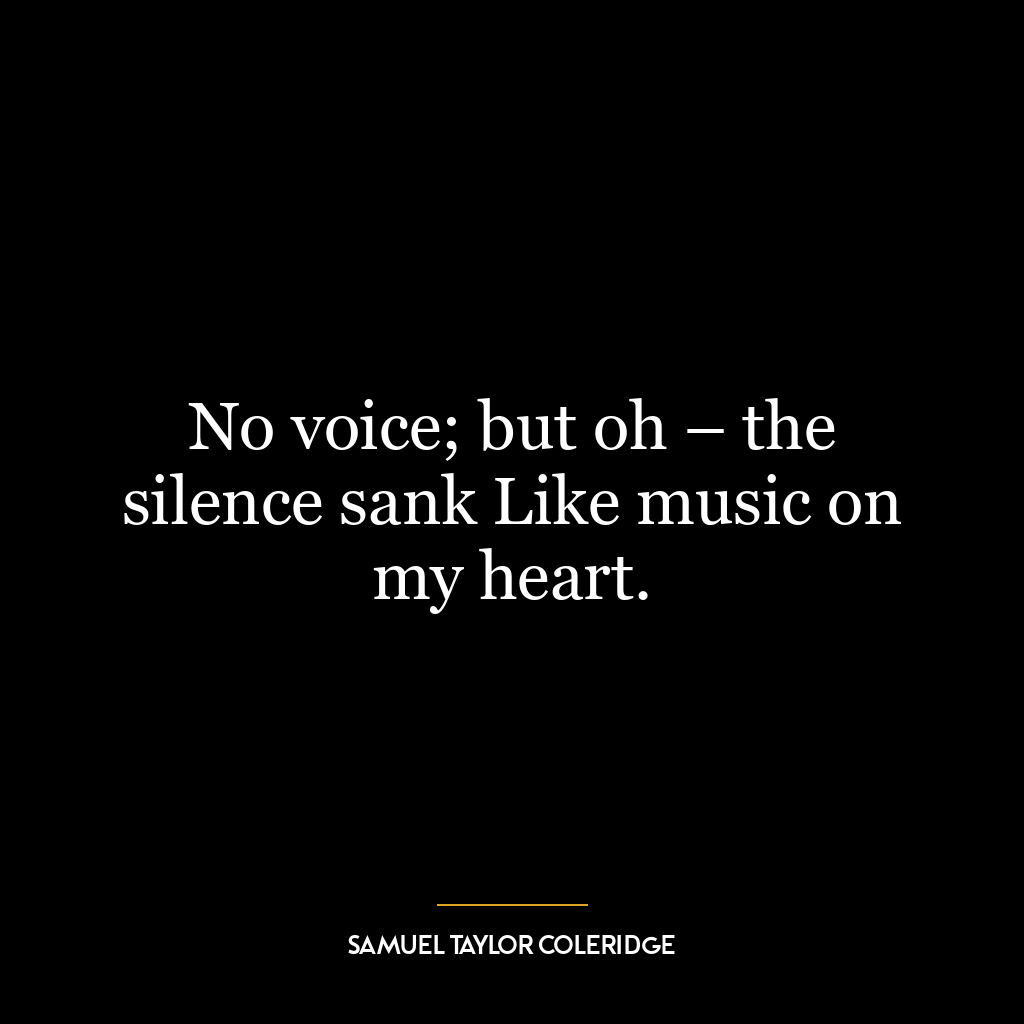John Gay Quotes
- Poet
- England
- 1685
John Gay (1685-1732) was an English poet and dramatist. He is best known for his satirical works, such as The Beggar’s Opera (1728) and its sequel Polly (1729). He also wrote the popular ballad “The Shepherd’s Week” (1714) and the poem Trivia (1716). Gay’s works often f…Read More
John Gay (1685-1732) was an English poet and dramatist. He is best known for his satirical works, such as The Beggar’s Opera (1728) and its sequel Polly (1729). He also wrote the popular ballad “The Shepherd’s Week” (1714) and the poem Trivia (1716). Gay’s works often featured themes of social injustice and political corruption, and he was a major influence on the development of the English ballad. He is remembered as one of the most important figures of the Augustan Age of English literature.Read Less
John Gay (1685-1732) was an English poet and dramatist. He is best known for his satirical works, such as The Beggar’s Opera (1728) and its sequel Polly (1729). He also wrote the popular ballad “The Shepherd’s Week” (1714) and the poem Trivia (1716). Gay’s works often featured themes of social injustice and political corruption, and he was a major influence on the development of the English ballad. He is remembered as one of the most important figures of the Augustan Age of English literature.
51 Insightful John Gay Quotes
John Gay Career Highlights
- Gay’s first major success came in 1714 with the publication of his poem “Rural Sports.” This work was praised by critics and established Gay as a rising literary star.
- In 1720, Gay wrote “The Shepherd’s Week,” a collection of pastoral poems that satirized the conventions of the genre. This work was a commercial success and solidified Gay’s reputation as a skilled satirist.
- Gay’s most famous work, “The Beggar’s Opera,” was first performed in 1728. This play, which was a parody of the popular Italian opera of the time, was a huge success and ran for 62 consecutive performances. It is considered one of the first examples of the ballad opera genre.
- In addition to his plays and poems, Gay also wrote several fables, including “The Hare and the Tortoise” and “The Fox and the Grapes.” These fables were widely read and have remained popular to this day.
Key Contributions by John Gay
- Gay’s most significant contribution to literature was his role in popularizing the ballad opera genre. His play “The Beggar’s Opera” was a huge success and inspired many imitations and adaptations.
- Gay’s satirical works were also highly influential, as they provided a commentary on the social and political issues of his time. His plays and poems often criticized the corruption and hypocrisy of the upper classes, making him a voice for the common people.
- Gay’s fables were also important contributions to the literary world. They were not only entertaining, but also contained moral lessons that were accessible to readers of all ages and backgrounds.
What Sets John Gay Apart
- Gay’s use of satire and parody in his works set him apart from other writers of his time. He had a sharp wit and a keen eye for social commentary, which made his works both entertaining and thought-provoking.
- Gay’s ability to write in a variety of genres, from pastoral poetry to ballad opera, also sets him apart. He was a versatile writer who was able to adapt his style to fit different forms and subjects.
- Gay’s works were also notable for their accessibility. He wrote in a language and style that was easily understood by the general public, making his works popular among all classes of society.
Takeaways
- John Gay was a highly influential writer of the Augustan Age, known for his satirical plays and poems.
- His most famous work, “The Beggar’s Opera,” was a parody of the popular Italian opera and helped popularize the ballad opera genre.
- Gay’s works were not only entertaining, but also provided social commentary and moral lessons.
- His use of satire, versatility in writing, and accessibility to all classes of society set him apart from other writers of his time.




